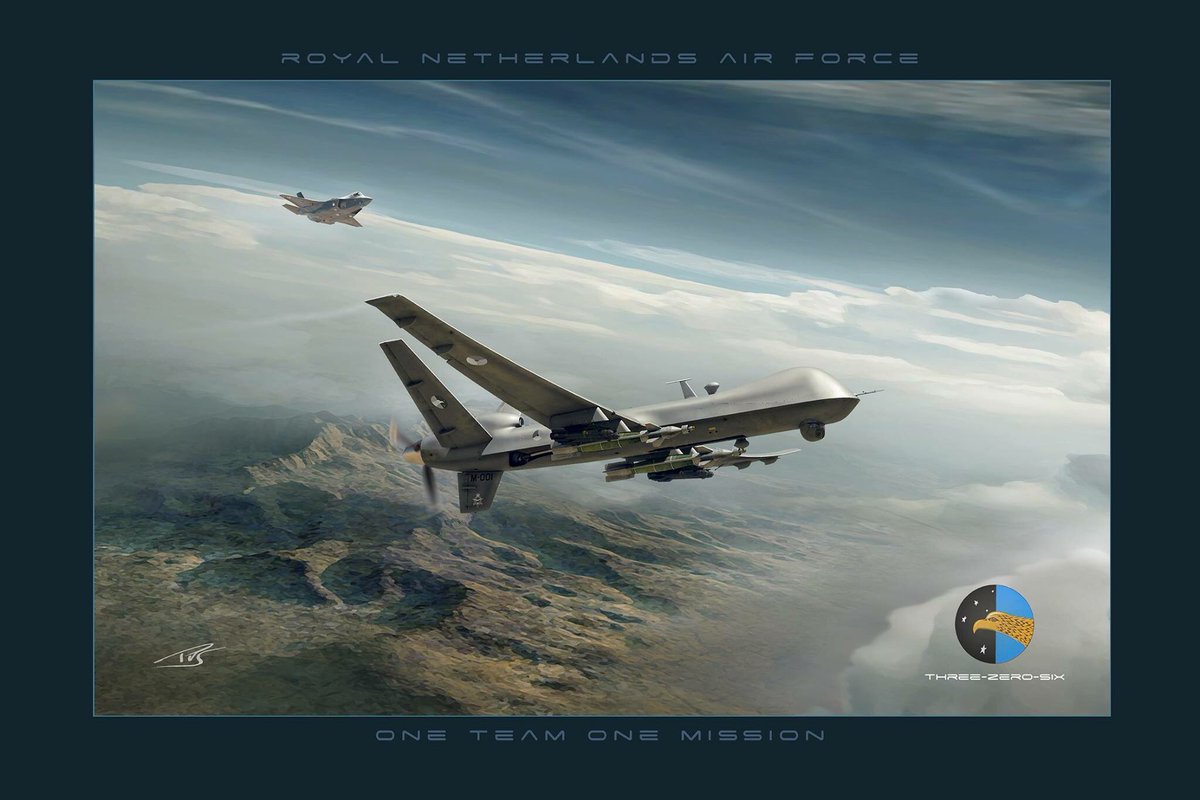Dutch Reaper Drone Squadron Now Operational

This month, the Dutch Royal Air Force reinstated 306 Squadron, which will operate the four MQ-9 Reapers the Netherlands is expected to receive in 2020.
These drones will be initially unarmed, although Commander of the Air Force Dennis Luyt alluded to armament during an interview in May 2018, in an article, titled ‘Air Force ready for armed drone‘. The Commander argued that armament would improve the versatility of the Ministry of Defense, but that the choice to first use the drones for Intelligence, Surveillance and Reconnaissance (ISR) purposes is more of a practical consideration than a principled one. As a result of the interview on June 29, 2018, new parliamentary questions were raised by Member of Parliament Salima Belhaj (D66), which were rejected by the State Secretary, because ‘armament is not at issue’. A remarkable statement, as in their official social media communication, the Royal Air Force posted an artist impression of a Dutch armed MQ-9 Reaper. This is not the first time the Dutch parliament has raised questions on the purchase of and use of such drones. For example, the Dutch political parties D66 and the SP recently asked the State Secretary for Defense, Barbara Visser, whether she could exclude the armed use of the Reapers. The State Secretary confirmed this, arguing that the drones have only been purchased ISR. These questions follow more than a decade of debates, motions, and questions over the still unresolved strategic, legal, and ethical issues surrounding the use of armed drones.
Even if the drones will not be armed, there are lingering concerns over the Reapers’ deployment to collect and share information. As highlighted in a recently published Amnesty report, the Netherlands risks becoming involved in illegal drone attacks, carried out by the United States, through the sharing of data. The Minister of Defense replied to the report stating that the collected data ‘should not be used for purposes that constitute a violation of international law‘. However, leaked documents show that most of the American drone attacks in Yemen, Afghanistan, and Somalia are based on metadata, in which the support of ‘foreign partners’ – such as the Netherlands – is crucial. This contradicts with conclusions made by the House of Representatives in 2014, which stated that it should express its concerns regarding the US drone policies, and that the Netherlands should initiate and stimulate an ‘open debate in an international context’. As a result from political pressure, the Commission on Oversight of Intelligence agencies published report on Targeting, which included questions around data sharing with partners and the potential misuse. The results is useful example of ‘best-practices’ set by a State on how to make a risk assessment for data sharing.
In March 2018 The Ministry of Foreign Affairs published their ‘Integrated Foreign and Security Policy’ in which they expressed their desire to have multilateral engagement in order to strengthen and improve international law, noting that the increased used of armed unmanned vehicles will require additional international agreements.
The Netherlands is also part of the core-group of States that is involved in the US Joint Declaration for the Export and Subsequent Use of Armed or Strike-Enabled Unmanned Aerial Vehicles, and the Dutch have repeatedly contributed to the debate in the UNGA First Committee, the Conference on Disarmament and the Human Rights Council.

